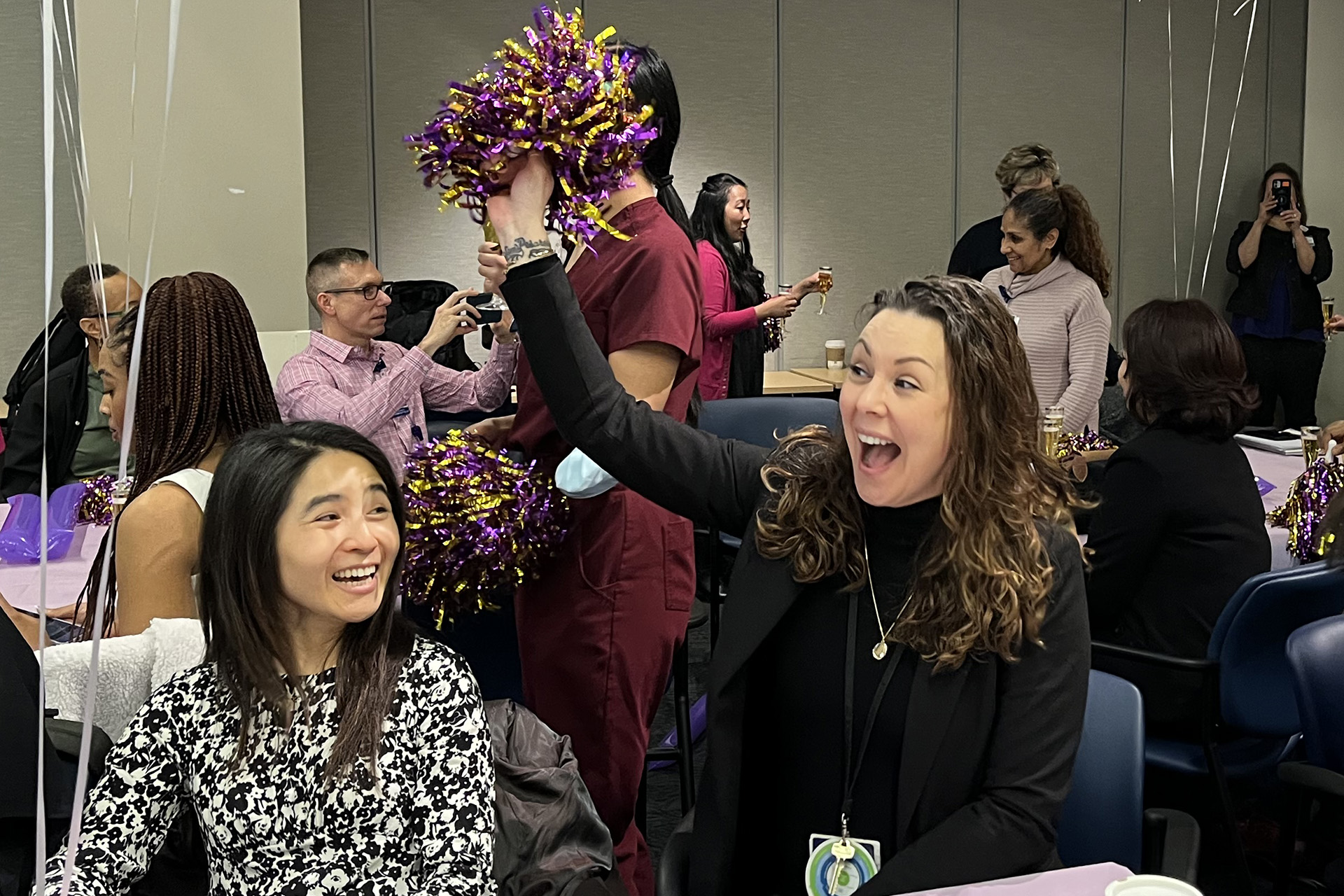Kaiser Permanente’s Family Violence Prevention Program is getting attention as a national leader in improving the health care response to intimate partner violence. (Pictured: Krista Kotz, Dr. Brigid McCaw, and Kelly C. Young-Wolff.)
Using an innovative approach, Kaiser Permanente Northern California has dramatically increased the recognition of patients experiencing intimate partner or domestic violence.
On June 21, the prestigious medical journal JAMA (Journal of the American Medical Association) published an analysis about the Family Violence Prevention Program by Kelly C. Young-Wolff, PhD, MPH, research scientist with the Division of Research, and Brigid McCaw, MD, MPH, MS, medical director, and Krista Kotz, PhD, MPH, program director, of the Family Violence Prevention Program. The co-authors recently discussed how lessons learned at Kaiser Permanente can be used to improve identification and intervention for domestic violence in other health care settings.
What are the challenges associated with health care identification?
Kotz: A patient may be experiencing headaches, anxiety, and depression, but wouldn’t know to say these symptoms are linked to intimate partner violence. Many health care systems don’t ask patients about it, or patients may not have the opportunity to talk to their doctor if their partner is in the room.
McCaw: Domestic violence is complex, and processes of disclosure, seeking services, and recovery are not simple and straightforward. Many people consider domestic violence a private matter. They are often frightened and ashamed and don’t realize it is a health issue that they can talk about with their doctor. And many doctors aren’t sure how to ask questions or respond when they learn a patient is experiencing domestic violence.
How does Kaiser Permanente address intimate partner violence?
Kotz: People who are affected by intimate partner violence may seek care in different departments, including emergency, outpatient clinics, and mental health. We have messaging throughout our facilities that lets members know that this is a place where they can go for help.
McCaw: We have made inquiry, recognition, and intervention part of everyday care. When patients disclose domestic violence, clinicians have tools and training so that they are confident about how to respond in a caring, effective manner and offer resources to work toward solutions with the patient. This can include referrals to on-site behavioral health clinicians or connections to community advocacy services that provide safety planning, shelter, and legal services.
How has research supported this care transformation?
Young-Wolff: We can use data from our electronic health record and automated data systems to identify risk factors and look for links to health care outcomes at a scale that isn’t possible in other health care settings.
McCaw: The initial pilot or test program was developed in collaboration with a Division of Research scientist, ensuring a rigorous design and data collection. We wanted to make sure that if the pilot was successful we had evidence that would support spreading the approach to other facilities. We were also able to publish the findings and contribute to the field.
Can Kaiser Permanente’s model of addressing intimate partner violence be replicated?
McCaw: We have implemented a coordinated systems model approach that can be easily adapted to other health care settings. This approach has been well received by both doctors and patients and resulted in an 18-fold increase between 2000 and 2015 in domestic violence identification at Kaiser Permanente Northern California. I hope that the article in JAMA will convince other health care providers and organizations that they can do this too.





This Post Has 0 Comments